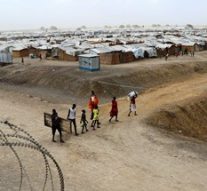
Is the re-opening of EU borders a chance or a threat for the migrants?
Migration 5 July 2020The EU has re-opened its borders. However, they are still not open for the migrants who are striving to reach their destination countries within the space of Western Europe. This analysis will present the EU’s stance in external and internal border management and control related to inflows of the citizens of the third countries, which potentially is applicable for the migrants aspiring to enter the territory of one of the EU Member States.
“The European Union has an internal process to determine from which countries it would be safe to accept travellers,” EU Commission spokesman Eric Mamer said, adding that its decisions are “based on health criteria.” Currently (July 3) the list issued by the European Commission counts more than 54 countries whose citizens are allowed to enter the Union’s territory as of the beginning of July. In accordance to what the Commission prescribed in March, all the persons, EU and non-EU nationals, who cross the external borders to enter the Schengen area are subject to systematic checks at border crossing points.
Border checks may include health checks, while the Member States have the possibility to refuse entry to non-resident third country nationals where they present relevant symptoms or have been particularly exposed to risk of infection and are considered to be a threat to public health.
Alternative measures to a refusal of entry such as isolation or quarantine may be applied where they are considered to be more effective. Any decision on refusal of entry needs to be proportionate and non-discriminatory. A measure is considered proportionate on condition that it has been taken following consultation of the health authorities and that it has been considered by them as suitable and necessary to attain the public health objective.
The Commission recommended the following objective criteria for the Member States, when drafting the list of countries, the citizens of which may visit the EU after July 1: epidemiological situation and coronavirus response in that country, the ability to apply containment measures during travel, and whether or not that country has lifted travel restrictions towards the EU. Based on these conditions, the Commission recommended that the nationals of the six Western Balkan countries should be the first to benefit from the abolishment of travel restrictions, all of which are in the above list.
However, nowhere in EU legislation are migrants the ones who are put in the first place, or even at the bottom of the agenda. The Commission recommends that Member States may reintroduce temporary border controls at internal borders if justified for reasons of public policy or internal security. In an extremely critical situation, a Member State can identify a need to reintroduce border controls as a reaction to the risk posed by a contagious disease. Member States must notify the reintroduction of border controls in accordance with the Schengen Borders Code. Such controls should be applied in a proportionate manner and with due regard to the health of the individuals concerned. Persons who are clearly sick should not be refused entry but appropriate measures should be taken as indicated in the acts. The conduct of health checks of all persons entering the territory of Member States does not require the formal introduction of internal border controls.
In order to avoid shortages and avoid that the social and economic difficulties that all European countries are already experiencing worsen, maintaining the functioning of the Single Market is key. Member States should therefore not undertake measures that jeopardise the integrity of the Single Market for goods, in particular of supply chains, or engage in any unfair practices. Member States must always admit their own citizens and residents and facilitate transit of other EU citizens and residents that are returning home.
How far these recommendations will be effective, an whether the migrants will still be locked dominantly in the migrant camps in the Western Balkans, remains to be seen. The EU has solid basis for lifting the measures to accept migrants, but the global developments with the pandemic are putting in place uncertainty to which even the best organized system cannot effectively respond due to the constant and unpredictable changes.


